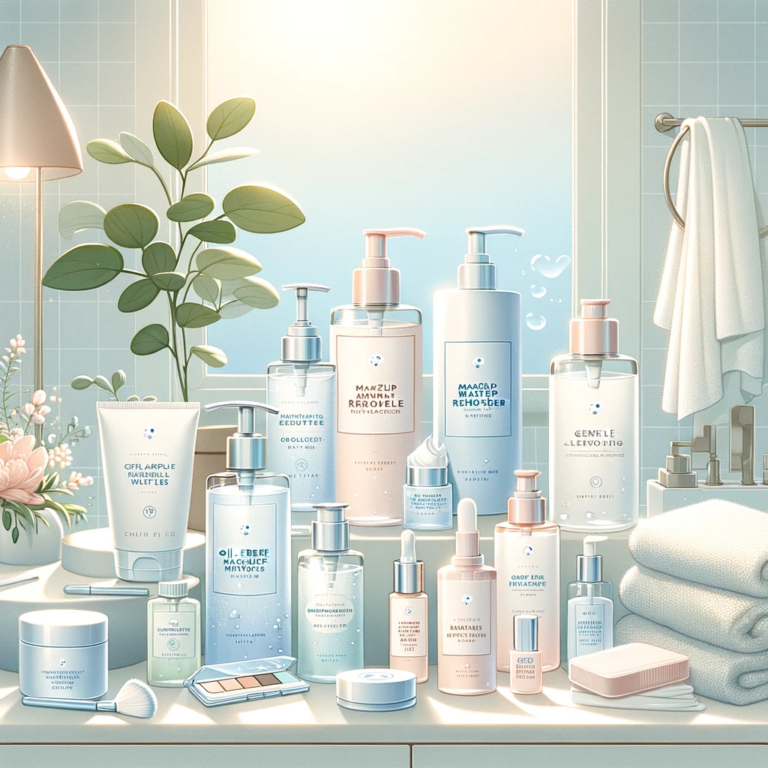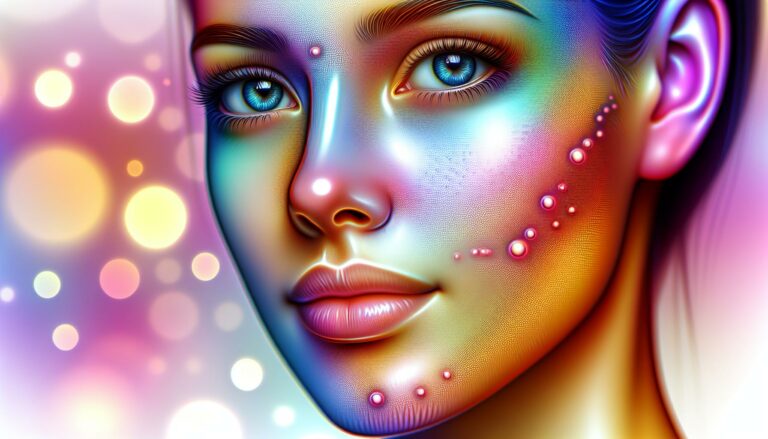Does Chlorine Help Acne?
Wondering if a swim could be your next acne treatment?
Diving into a pool might offer more benefits than just a relief from the heat. The idea that chlorine, commonly used to keep pools clean, could double as an acne remedy has made waves among those looking for alternative treatments.
This is largely due to chlorine’s drying effect on the skin, which might seem beneficial for acne-prone individuals at first glance. But is taking a dip really the answer to clear skin?
Well, we’ll be going over:
- How does chlorine’s antibacterial property affect acne-prone skin?
- Can the drying effect of chlorine actually lead to more acne?
- Are there better alternatives to treat acne effectively?
Let’s dive in.

The Effect of Chlorine on Acne
Delving into how chlorine affects acne requires understanding its properties. Chlorine, a potent antibacterial agent, can kill some of the bacteria on your skin that contribute to acne. However, the relationship between chlorine and acne isn’t solely beneficial.
Chlorine’s drying effect on the skin is well-documented. This might sound advantageous since oily skin can lead to acne breakouts. However, when your skin gets too dry, your body responds by producing more oil to compensate. This excess oil can clog pores, leading to more acne.
Moreover, the irritation caused by chlorine, especially in sensitive individuals, can exacerbate acne issues. Skin already prone to acne can become more inflamed and irritated after prolonged exposure to chlorinated water.
In essence, while chlorine has some properties that could theoretically help with acne, its overall impact could potentially worsen your skin condition. It’s critical to weigh the antibacterial benefits against the possible adverse effects on your skin’s health.
Does Chlorine Dry Out the Skin?
Absolutely. Chlorine has a notable drying effect on the skin. This is because when you’re exposed to chlorine, either by swimming in a chlorinated pool or through water in your shower, it strips away the natural oils that protect your skin. These oils are essential for maintaining your skin’s moisture barrier.
When this protective layer is compromised, your skin becomes more vulnerable to dryness and irritation. The sensation of tightness and visible flakiness might be the first signs you notice. Over time, this dryness can prompt your skin to overcompensate by producing additional oil, which, paradoxically, could worsen acne issues.
It’s essential to understand that while chlorine’s antibacterial properties can initially seem beneficial for acne, the subsequent drying effect requires careful management. After exposure to chlorinated water, thoroughly rinsing your skin with fresh water and applying a moisturizer suited to your skin type can help mitigate dryness.
The Myth of Chlorine as an Acne Treatment
Swimming pools and the myth of chlorine as a cure-all for acne have been around for years. It’s a common belief that because chlorine is a disinfectant used to kill harmful bacteria in pool water, it must also be effective in zapping acne-causing bacteria on your skin. However, this is not entirely accurate.
While it’s true that chlorine has antibacterial properties, using it as an acne treatment is not as straightforward as you might think. The drying effect of chlorine on your skin could actually trigger an increase in oil production. Your skin attempts to compensate for the loss of natural oils stripped away by chlorine, potentially leading to more breakouts rather than fewer.
Moreover, the harsh nature of chlorine can cause irritation, especially for sensitive skin, exacerbating acne issues rather than alleviating them. Instead of relying on chlorine water to clear your skin, it’s better to stick to proven acne treatment methods and to consult a dermatologist for personalized advice.
The Potential Side Effects of Chlorine on the Skin
When considering chlorine as a remedy for acne, it’s crucial to be aware of the potential side effects on your skin. While chlorine possesses antibacterial qualities, its harshness cannot be overlooked. One of the primary concerns is skin dryness. Chlorine strips the skin of its natural oils, leading to excessive dryness. This might seem beneficial in combating oily skin, but it actually sends your sebaceous glands into overdrive, producing even more oil and potentially worsening acne conditions.
Another significant concern is skin irritation. Individuals with sensitive skin may experience redness, itching, and even a burning sensation after prolonged exposure to chlorinated water. This irritation can aggravate existing acne, causing further discomfort and possibly leading to more breakouts.
Finally, there’s the risk of disrupting the skin’s natural balance. Chlorine alters the skin’s microbiome, the delicate balance of bacteria that protects against harmful microbes. Messing with this balance can leave your skin vulnerable to a variety of issues, including acne.
Remember, chlorine’s disinfecting properties are undeniable, but the side effects on your skin’s health might not be worth the risk. It’s always best to consult a dermatologist before trying unconventional acne treatments.
How to Treat Acne Effectively?
Treating acne effectively means understanding your skin type and tailoring your skincare routine to match it. First and foremost, always keep your skin clean. Use gentle cleansers that remove dirt and excess oil without stripping your skin of its natural moisture. This delicate balance is crucial for preventing both dryness and excessive oil production, which can exacerbate acne.
Incorporate products with salicylic acid or benzoyl peroxide. These ingredients are proven to combat acne by unclogging pores and reducing inflammation. However, it’s essential to use them sparingly as they can be drying if overused.
Stay hydrated by drinking plenty of water and using a non-comedogenic moisturizer. Hydration is key to maintaining the integrity of your skin’s barrier, which protects against acne-causing bacteria.
Dermatologist consultations are invaluable. If over-the-counter products don’t seem to work, a dermatologist can offer prescriptions or treatments like light therapy, which targets acne without harming the surrounding skin. Remember, patience and consistency are paramount in any skincare regimen.
Conclusion
Diving into the idea of using chlorine to combat acne might seem like a quick fix but it’s far from a solution. Your skin’s health is paramount and resorting to harsh chemicals like chlorine can do more harm than good.
It’s essential to lean towards gentler, more effective methods that nurture rather than disrupt your skin’s well-being. Remember, achieving clear skin isn’t an overnight miracle. It requires a dedicated regimen that includes proper cleansing, hydration, and the right acne-fighting ingredients.
Consulting a dermatologist remains your best bet for tailored advice and treatments that cater to your skin’s unique needs. Stay patient, stay consistent, and let your skin’s natural balance lead the way to a clearer, healthier complexion.






